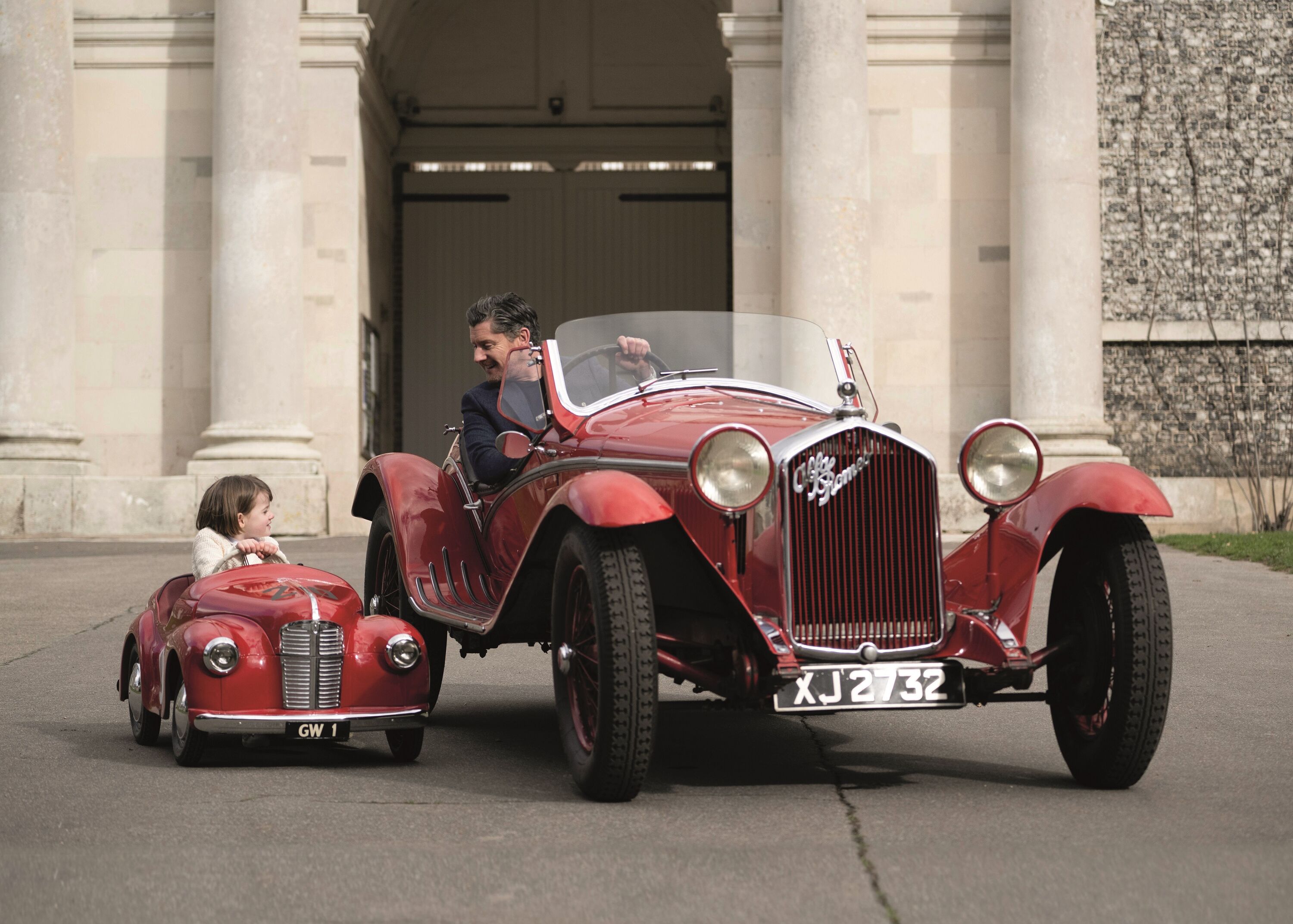The fastest accelerating cars for £20,000
Want to go quickly, fast? Then feast your eyes on this little lot as we focus on the fastest accelerating cars you can get on a budget of £20,000. You'll find the usually eclectic mix of machines here, from leather-lined barges to a Lotus Elise with no carpets, performance saloons, hot hatches and EVs – they are all here. These are the fastest accelerating cars you can buy for £20,000.

Lotus Elise 111R – 0-62mph in 4.9 seconds
Okay, so you don't have to look too far to find a big-engined luxury barge that can hit 0-62mph faster than a Lotus Elise. Still, when acceleration is so intrinsically linked to weight, it would be a shame not to feature a Lotus Elise when one's available on budget.
Our budget buys what is arguably one of the best Elises available. The 111R packs a high-revving, stepped-cam 1.8-litre VVTL-i four-cylinder, which rushes towards the redline with a bounding enthusiasm that suits the little Lotus down to the ground, using the tightly packed six-speed gearbox to keep things on the boil. The Lotus looks like a junior supercar but handles even better because it weighs less than 750kg. Cheap to run, reliable (with that Toyota engine) and almost completely resistant to depreciation, the Lotus is one of the most sensible options on this list. However, you'll need the flexibility of a gymnast to get in one with your pride intact.

Bentley Continental Flying Spur – 0-62mph in 4.9 seconds
The Bentley Continental Flying Spur's method of getting from 0-62mph as quickly as physics allows couldn't be more different to the Lotus Elise's. In the Bentley, lightweight makes way for a twin-turbocharged W12 and four-wheel drive to get this mansion on wheels from 0-62mph in 4.9 seconds.
Deft-of-touch handling isn't in the Bentley's forte, instead it bullies the Tarmac into submission with grip and power. The payoff of the Bentley's weight is the comfort it offers; it has thick leather seats and chrome and wood panelling that you'd typically find in a private members club. The Bentley would have cost its original owner more than £100,000, so why is it so cheap now? Huge running costs. It might cost less than £20,000 now, but the Spur has the maintenance requirements of a car that costs five times that.

Jaguar I-Pace – 0-62mph in 4.8 seconds
Jaguar isn't always known for having its finger on the pulse of innovation. The XJ's styling barely changed in 40 years; the XE was based on a Ford Mondeo, and underneath the S-Type's wood panelling and retro grille lurked the underpinnings of a Lincoln LS.
So, you can imagine how surprised we were when the electric I-Pace broke cover in 2018, a small executive EV that beat rivals from Mercedes, BMW, and Audi to the punch. Ian Callum's sporty SUV design hid the EV's inherent bulk well, and its feline looks were backed up with impressive agility. Acceleration is an EV USP, and the I-Pace does nothing to dispel this theory – it gets from 0-62mph in 4.8 seconds thanks to instant torque and four-wheel drive.

Caterham Seven Roadsport 175 – 0-62mph in 4.8 seconds
If the Jaguar I-Pace represents the new wave of cars that accelerate quickly, the Caterham Seven Roadsport 175 is gloriously old school, choosing lightweight over big power and complex drivetrains. Its modest 2.0-litre Ford Duratec engine is enough to get the Caterham from 0-62mph in just 4.8 seconds thanks to a kerb weight of 625kg. The Caterham Seven reacts instantly to your every input – driving doesn't get much purer.
The downside of the car's light weight is that it's also basic. You don't get proper doors (well, any doors), so getting in is a major hassle. The fuel tank is tiny, and the kind of kit you'd expect to find in any other modern car: power steering, ABS, and infotainment screen, is refreshingly absent in the Caterham.

Jaguar XKR – 0-62mph in 4.8 seconds
The Jaguar XKR doesn't need four-wheel drive or a quick-shifting dual-clutch gearbox to get from 0-62mph in 4.8 seconds; all it needs is a 5.0-litre V8 with a supercharger. The XKR is a big, comfy GT car, but it handles with surprising aplomb, mixing rounded agility with a butter-smooth ride and a delightfully muscular V8 soundtrack.
The XK is ageing incredibly gracefully with a slightly less try-hard body shape than the smaller F-Type. The old-fashioned interior looks more American than British with its pebbledash of Ford switchgear. However, the hefty slabs of polished timber mounted to most of the interior help redress the balance. You even get back seats.

BMW E90 M3 – 0-62mph in 4.8 seconds
The E90 BMW M3 has a Jekyll and Hyde character, which comes when you mix a race-bread V8 engine with the body of a 3 Series saloon. The engine is a peach. A sharp-reacting, high-revving, induction-roaring tribute to the gods of natural aspiration (the type of which is not long for this world) that forces the M3 from 0-62mph in just 4.8 seconds. It also handles beautifully with an M Motorsport bespoke chassis and an electronically actuated limited-slip differential. It’s just the underwhelming brakes let the M3 down in the driving department.
Only the initiated will know you're driving a BMW icon; thanks to the stealthy body kit, others will think it's a standard BMW 3 Series saloon. And the M3 plays at being an average saloon very well. It's well-built inside and has a roomy cabin with back seats that adults can use. It is like a drink, and early models have weak rod bearings.

Audi RS4 Avant – 0-62mph in 4.7 seconds
The Audi RS4 Avant is one of those rare things in life – an actual performance car you can enjoy without compromising. It can play at being a V8 touring car during the week (with the rumbling soundtrack to match) while being the practical family estate car at the weekend, as happy taking the kids to football practice as it is carrying home the spoils of an assault on your local B&Q.
The famed Quattro four-wheel drive means the Audi can launch itself from 0-62mph in 4.7 seconds, with a twin-clutch gearbox helping keep everything on the boil, but it's even more handy in the UK, where it removes any edginess on wet roads. Admittedly, it doesn't have the agility of the BMW, but the Audi can still mix it in the corners once you learn to trust the odd-feeling steering. As expected, the Audi isn't cheap to run, so watch for coking caused by the engine's direct injection.

Mercedes A45 AMG – 0-62mph in 4.5 seconds
The Mercedes A45 AMG was a head-scratcher of a car when it first went on sale. Us journos loved its performance – 0-62mph in 4.5 seconds was genuinely shocking for a hot hatch in 2013, but mused that it lacked the polish of a true Mercedes, both in the gruffness of its powertrain and in the questionable fit and finish of the interior.
Now, though, these complaints melt away. As an older model, we expect less from the interior, and time has allowed us to accept the A45's four-cylinder engine. If you need to get from A to B exceptionally quickly, the A45 is a hard car to argue with. It can snort from one corner to the next with eye-widening pace thanks to its enormous power, speedy twin-clutch gearbox changes, and prodigious four-wheel drive grip. The A-Class lacks the chassis adjustability of a BMW M135i, but the Mercedes would be the quickest over a twisting stretch of British B road.

Tesla Model 3 Dual Motor – 0-62mph in 4.5 seconds
Tesla blew away the jumped-up-milk-float image of the electric car as quickly as its inaugural Model S destroyed Lamborghini's at the drag strip. Fact is, all that noise, cubic inches, and cylinders in the world can't compete with electric motors that chuck down buckets of torque instantly and can modulate their power delivery to balance perfectly on the limits of traction – it's why the Tesla Model 3 can get from 0-62mph in 4.5 seconds. Being smaller than the Model S, the 3 is also more fun to throw around, like you're driving a rally car from the confines of a sensory deprivation tank, it can tackle corners with decent vigour before silently slaughtering the straights.
Day to day, this can be very relaxing, but on the odd times you do get the car to yourself, you'll fall on the one major chink in the Tesla's armour – it's devoid of character. Sometimes, there really is no substitute for noise, cubic inches, and cylinders.

Audi RS3 – 0-62mph in 4.3 seconds
The Audi RS3 was a mini marvel when it went on sale in 2015. The size of a Volkswagen Golf, its rally-inspired five-cylinder engine served up mountains of power and torque, which meant one of Audi's most modest performance models could mix acceleration times with one of its greatest – close to matching the R8 supercar with 0-62mph taking 4.3 seconds. The hatchback even sounded good, with a loveable warble that gave the Audi its own character next to the roar of the Mercedes A45 and the silky-smooth howl of a BMW M135i, although the big engine makes the RS3 feel nose-heavy.
Conversely, the Audi was better at being a regular car than the BMW or the Mercedes. Its cabin quality felt several rungs up the ladder, and it was also more practical, with decent back seat space and a square boot. With prices starting from well under £20,000, it seems like the performance bargain of the century.
Road
News
List
Lotus
Audi
Caterham
BMW
Jaguar
Mercedes
Bentley
Tesla
Model 3
Continental Flying Spur
A45
Elise-R
XKR
I-Pace
M3
Seven
RS4
RS3





